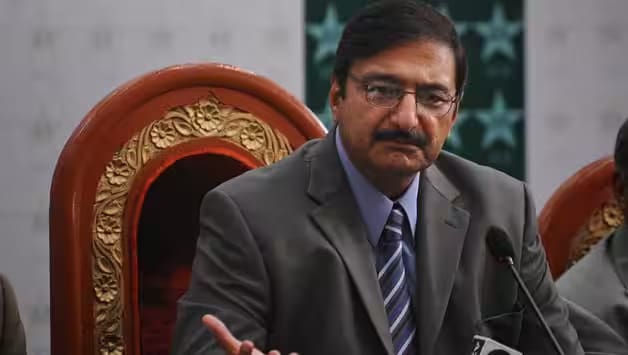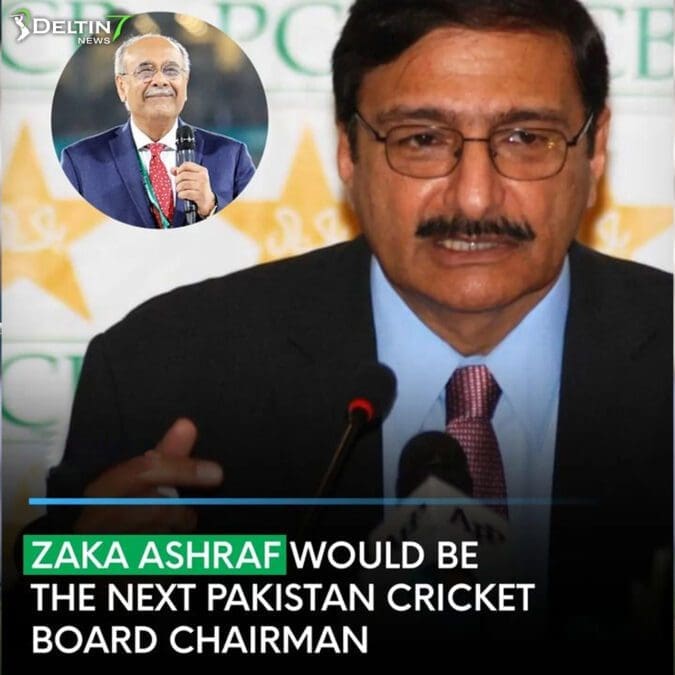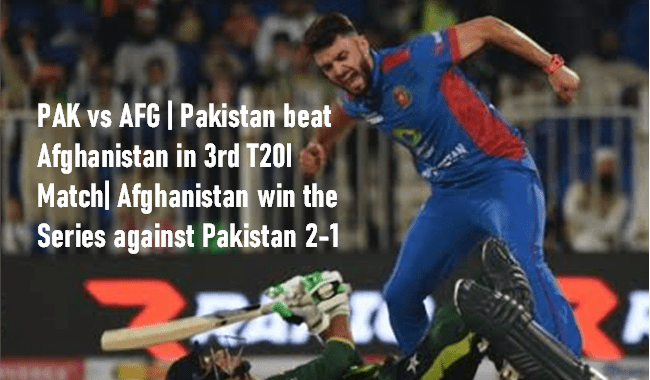Pakistan Cricket Board New Chairman

In a surprising turn of events, former Pakistan Cricket Board (PCB) chairman Zaka Ashraf has taken a step closer to reclaiming his position at the helm of the organization. Ashraf, along with renowned Supreme Court lawyer Mustafa Ramday, has been nominated by the country’s Prime Minister to join the PCB’s board of governors. This development comes on the heels of Najam Sethi’s withdrawal from the running to become the board chairman. With the Prime Minister’s appointment traditionally leading to the board chairman role, Ashraf is now the overwhelming favorite for the position.
A History of Turmoil and Power Struggles
The resurgence of Zaka Ashraf after a nine-year hiatus from the role brings an end, at least for now, to the longstanding power struggle that defined his previous tenure and clashed with Sethi between 2013 and 2014. The two engaged in a lengthy legal battle for the chairmanship, resulting in a series of back-and-forth changes in leadership. The situation finally found some resolution when former Prime Minister Nawaz Sharif ousted Ashraf and appointed Sethi. However, after intense mediation between the two factions, Sethi ultimately made way for Ashraf’s return.
Political Horse-Trading and Controversy
Najam Sethi’s withdrawal from the race for the PCB chairmanship sheds light on the ongoing political maneuvering behind the scenes. Sethi’s tweet explicitly mentions his desire to avoid becoming a point of contention between Asif Zardari and Shehbaz Sharif, two prominent political figures in Pakistan. Shehbaz Sharif, currently the Prime Minister, holds the position of PCB patron, and traditionally, the PCB chairman would be chosen from his party, the Pakistan Muslim League – Nawaz (PML-N). However, the Pakistan People’s Party (PPP), led by Asif Ali Zardari, has argued that as the party in charge of Pakistan sports through the Ministry for Inter-Provincial Coordination (IPC), they have the right to nominate their preferred candidate. This political tug-of-war has added further intrigue to the PCB chairman selection process.
Changes in the Domestic Cricket Structure
Aside from the leadership dynamics, the PCB has also undergone significant changes in its domestic cricket structure. The previous six-team provincial model, initially established with the support of former Prime Minister Imran Khan, has been replaced with a system featuring 16 regions and a return to departmental cricket. As part of this restructuring, four regions and four departments will be granted board seats at the PCB for a three-year term. These changes align with the provisions outlined in the 2014 constitution, which has been reinstated after the scrapping of the board’s 2019 constitution in December last year.
The Role of Najam Sethi’s Interim Management Committee
Najam Sethi, who has been leading the PCB on an interim basis since Ramiz Raja’s removal as chairman, has overseen various crucial developments during his tenure. His committee was tasked with reinstating the 2014 constitution, reestablishing the regional and departmental structure in domestic cricket, and forming a board of governors while electing a chairman. Sethi’s committee also played a pivotal role in recruiting a predominantly overseas coaching staff for the Pakistani team, with former head coach Mickey Arthur appointed as part-time director of cricket.
Challenges for the Future Chairman
While Najam Sethi’s successor faces numerous responsibilities, one of the most pressing issues will be Pakistan’s potential participation in the Asia Cup and the subsequent World Cup, scheduled to be held in India later this year. Sethi had recently mentioned that Pakistan’s involvement in the Asia Cup hinged on the approval of the Pakistani government. The new PCB chairman will need to navigate this complex situation and make critical decisions that will shape the country’s cricketing future.
Conclusion
Zaka Ashraf’s nomination to the PCB’s board of governors marks a significant step toward his expected appointment as the next chairman. The political dynamics surrounding the selection process, along with the ongoing restructuring of the domestic cricket structure, add intrigue and complexity to the situation. As Ashraf prepares to potentially take the reins once again, cricket enthusiasts and stakeholders eagerly await the official announcement that will determine the future direction of Pakistan cricket.














